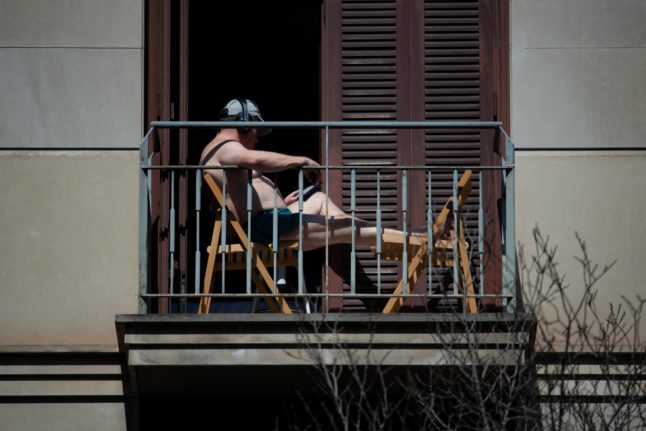Spanish landlords are finding legal loopholes to get around rental price caps outlined in the government’s flagship housing legislation.
Spain’s Housing Law, passed back in 2023, was a wide-ranging bill that shifted agency fees onto landlords, created rental price indexes, and established ‘stressed’ rental zones, among many other things.
For renters in Spain, however, (and landlords too, no doubt) the most eye-catching clause was the one concerning rental price caps. For tenants, this was particularly welcome at a time when rental costs have skyrocketed in Spain in recent years — as 2023 ended, rents were on average 9.4 percent more expensive than the previous year, according to data from Idealista.
READ ALSO:
- How Catalonia will control prices in ‘stressed rental areas’
- What will happen to rents in Spain in 2024?
Before the Hosing Law, during the first five years of rental contracts in Spain the landlord had the right to increase the price each year by the same percentage as the CPI. But the new law capped them for 2023 and 2024, and established an index that will replace the CPI reference.
In 2023 the limit was 2 percent, but in 2024 a 3 percent cap will apply, whatever the level of inflation. That is to say, in theory landlords may not raise the price of their contracts already in force above 3 percent. Unfortunately, the cap does not usually apply to new contracts, nor those signed after 2019.
READ ALSO: Five key points about Spain’s new housing law
However, reports in the Spanish media in recent weeks suggest that some landlords are using a legal loophole to circumvent the rules and charge their tenants rent increases of more than 3 percent.
But how’s that possible, and what’s going on here?
In a phrase: cumulative increases (incrementos acumulativos in Spanish). Essentially, the law allows landlords who didn’t increase the rent by 2 percent in 2023 (the legal cap as per the legislation) to add it onto the 3 percent cap for 2024, making the rent increase 5 percent.
José Ramón Zurdo, director of the Rental Negotiating Agency, told 20 Minutos that “the law always refers to a specific period, in this case the years 2023 and 2024. In those years, the update ceiling is 2 percent and 3 percent respectively, but it does not say that it cannot be accumulated and that, therefore, higher increases can be applied in certain cases.”
And the rises could even theoretically surpass that. Experts warn that increases could be claimed according to the price indexes (in other words, how much rent can be increased as per the contract) for all the years in which they have not been applied, essentially applying them retroactively.
REAS ALSO: Where can I rent a studio for a good price in Spain in 2024?
“It is possible to take them up to the limit periods, which is five years. If they [rent increases] have not been waived, it is possible to claim them,” Zurdo explains. This means that the increases in some cases “could be more than just 5 percent, but in some cases up to 10 percent or 15 percent”.
But who is to blame here? Though many renters will blame landlords for using this cumulative increase trick, experts place the blame with the government.
Arantxa Goenaga, a civil law expert and partner at Círculo Legal, says the legal loophole is a consequence of a law that “has been done badly”.
“You cannot modify this index, this increase, by decree, and not modify the LAU [Urban Lease Law], because you are creating a contradiction in the laws,” she adds.
According to Goenaga, the problem is that the law “lacks legal precision, it seems that laws are not made by lawyers, and this is giving rise to many problems.”
READ ALSO: Is it better for landlords in Spain to rent to temporary or long-term tenants?



 Please whitelist us to continue reading.
Please whitelist us to continue reading.
Member comments